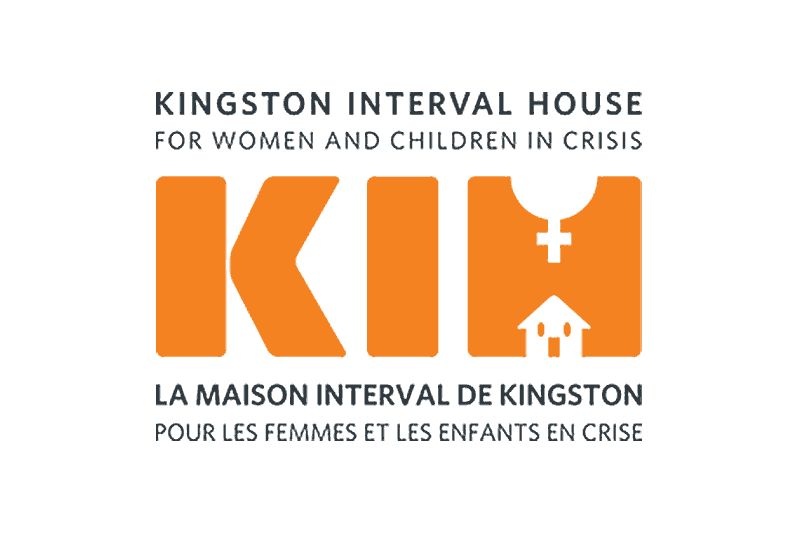Jeff Green | Nov 10, 2021
When the COVID-119 lockdown hit, a lot of people faced new levels of stress, but for Interval House and the clients that the agency works with, it brought unprecedented challenges.
“There were so many moving parts when COVID first hit,” said Theresa Metcalfe, Community Services Manager at Kingston Interval House.
Kingston Interval House has been working with women and children facing gender-based intimate partner violence for over 45 years, since 1975. It operates an emergency shelter with a capacity of 25, Robin's Hope, a second stage housing location with 18 apartments that is available for up to one year, a multifaceted outreach program, and a 24 hour crisis line.
When COVID hit, women has less freedom to move around than normal, many people were working at home and families were together 24 hours a day. Women also stayed with their abusers longer than they normally would have.
“They felt very torn. They thought, 'how could they go to a shelter and risk exposure to COVID, but how can we stay in the situation we are in'” said Metcalfe.
It was also much more difficult to access outreach counselling because of a lack of privacy in the home.
And instead of in-person counselling, Interval House Counsellors had to resort to the phone and Zoom.
“Our counsellors were also working at home, so it was difficult for them not having support from their colleagues,” she said.
The Interval House emergency shelter has a lot of communal areas, and that became a problem during COVID because families had to remain in their own bubble. The capacity of the shelter was cut in half.
“There have been a lot of ebbs and flows over the last year and half. At first we had to deal with a lot of outreach during the lock down, then when things opened up and people started moving around our shelter became busier.”
When the shelter is full, as it often is, Interval House staff call around to other shelters to find beds or to find transitional housing for women and children.
Families who have been living at Robin's Hope have faced another difficulty, as affordable housing has become harder and harder to find over the last 18 months.
“This is a developing problem that women are having to deal with,” she said, “and Robin's Hope is always full. There is a need for more transitional housing.”
But in spite of all of the difficulties that COVID brought to women and children in abusive situations and those who work with them, she said “we always remain optimistic and we have learned about other ways we can provide outreach through the pandemic. Phone calls, and zoom calls can be effective in many cases, and can help people who have transportation issues to deal with, especially in rural areas.”
One of the Interval House programs is an activity program for young children, and it did not seem like a good candidate for virtual delivery.
“We thought 4 and 5 year olds would not be able to concentrate on crafts and other activities over Zoom, but it works pretty well. We are certainly going to integrate some of what we have learned into our work in the future.”
As to rural services, the outreach service to Frontenac County has not been operating but they hope to start travelling again. Sometimes there is funding to provide transportation to services in Kingston, but much of the service is being offered through electronic means at this point.
“I think if there was one message, it is not to hesitate to call us if our services are something that can benefit you. We are available 24 hours. Women can call just for information, for counselling. The first step let us know if you need us and we’ll go form there,” she said.
Sometimes women hesitate to call because they feel that their situation is not that extreme, not that difficult, and they don't want to use limited resources that should be reserve for women in crisis situations.
“We don't look at it like that,” said Theresa Metcalfe, “everyone is different, every situation is different. We are not necessarily saying to everyone that they need a safety plan, they might need someone to talk to.”
For information about Interval House Kingston and the services they offer, go to Kingstonintervalhouse.com. Call 613-546-1833 during business hours, or the Crisis Line - (613) 546-1777 or 1 (800) 267-9445.
More Stories
- Harrowsmith Public School and the Magic of Theatre
- You’re a Good Man Charlie Brown – a school wide effort at SHS
- Leadership From Within
- New Bulk Water Station in Sydenham
- Frontenac County Council looks at Healthcare Recruitment
- Good Turn Out Maple Fest Despite Rain
- Future looking brighter for Denbigh Fire Department says Chief
- Local Favourites featured at 2nd Annual SF Music Festival
- Perth Festival of the Maples, Saturday, April 27
- South Frontenac Council

